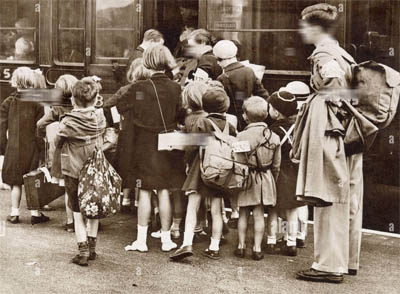
Nottingham Journal – Monday 14 March 1864
SHIRE HALL, NOTTINGHAM.
SATURDAY. – (Before Mr. Birkin and Mr. Edge.)
DRUNKENNESS.
John Tomlinson, charged with drunkenness at Radford, on the 8th inst. Fined 10s.—Enoch Hodgkinson, for a similar offence on Sunday last, at Nuttall. Fined 10s. and costs.—Two men, named Alsopp and Hand, drunk and disorderly at Basford last Saturday night. Fined 15s. each; or, in default, one month’s imprisonment.
ASSAULT ON A POLICEMAN.
John Bond pleaded guilty to having assaulted Police-constable Holland at the “Windsor Castle” public-house, Carlton, and was fined 20s. and costs.
THE PRIZE FIGHT AT LENTON.
William Brownlow was charged with having participated in a prize fight which took place at Lenton on the 29th ult.—Police-constable Smith said he saw the fight, and the prisoner in the ring. Never saw the prisoner before. Saw him for five minutes in the ring. Brownlow denied that he was present.
Mr. Patchitt: Why did you not come up when summoned?
Brownlow: I’ll tell you the truth; I could not.
Mr. Patchitt: Why not?
Brownlow: I was under a forfeit of £20.
Mr. Patchitt: Well, I don’t want to know, but I suppose it was another fight.—Police-constable Hallam distinctly identified the prisoner as one of the mob.—Brownlow still denied that he was present, adding that wherever anything occurred, they were sure to blame him.—Ordered to find sureties to keep the peace: himself in £20, and two sureties in £20 each for twelve months.
BREACH OF THE BEER LICENSE.
William Hicks, beer-house-keeper, Radford, was charged with selling beer on Sunday last, during the prohibited hours. The beer was fetched out of the house about twelve o’clock, but witnesses having been called to prove that it was obtained for a sick woman, the bench cautioned the defendant, and dismissed the case.
Explanation and Context for Researchers
This article, published on Monday, 14 March 1864, in the Nottingham Journal, provides a snapshot of legal proceedings at Shire Hall, Nottingham. The cases demonstrate common societal issues in Victorian Britain—specifically drunkenness, violence, and breaches of licensing laws. Each reflects different aspects of working-class life and the struggle for order in public spaces.
Key Themes and Victorian Era Context
- Drunkenness
- Significance: Drunkenness was a recurring issue in 19th-century Britain due to the widespread availability of cheap alcohol and limited recreational alternatives for working-class men.
- Fines: Those fined, like John Tomlinson and Enoch Hodgkinson, illustrate how the courts addressed minor public disturbances through monetary penalties or imprisonment for repeat offenders.
- Assault on Policemen
- Significance: Assaults on police officers often occurred in pubs or public houses, where alcohol-fuelled tensions were frequent. The “Windsor Castle” public house case highlights this dynamic.
- Outcome: John Bond’s case reflects the growing role of the police in maintaining public order and the courts’ determination to punish such offences.
- Prize Fights
- Significance: Prize fighting (bare-knuckle boxing) was illegal but popular among the working class as a form of entertainment and gambling. Authorities regularly attempted to suppress these events.
- Details: William Brownlow’s case shows both the courts’ and police’s efforts to clamp down on such activities. The mention of a £20 forfeit suggests significant financial stakes for the fighters.
- Breach of Beer Licensing Laws
- Significance: Laws restricted the sale of alcohol on Sundays to enforce a day of rest and reduce moral decay. Publicans like William Hicks often faced prosecution when bending the rules.
- Outcome: The case dismissal (due to the beer being fetched for a “sick woman”) reflects Victorian sensitivities to illness and morality.
For Researchers: Drunkenness and the Victorian Era
The article is particularly useful for researchers studying:
- Alcohol consumption and its societal impact during the 19th century.
- Policing and public disorder management in Victorian towns.
- The interaction between law enforcement and working-class communities.
- Cultural norms regarding public houses, prize fighting, and licensing laws.
This case also emphasizes the growing prominence of law enforcement officers in addressing public disturbances and ensuring compliance with local laws.
Free to use British Newspaper Research Service
British newspapers offer a treasure trove of information for family historians. They capture moments in time, providing context, character, and community insight that official records cannot. With the free service provided by Old British News, this research becomes even more accessible, enabling historians to delve into rich, untold stories of their relatives. By combining these resources with other records, family historians can create a more complete and engaging picture of the past.
I search historical articles to locate mentions of your ancestors—whether they were involved in notable events or simply part of the everyday life reported in these newspapers. If relevant articles are found, I deliver them to you in a PDF format at no cost.
If I find articles, they’ll be sent to you in a clear, organised PDF. If not, you’ll be informed right away. See here.



